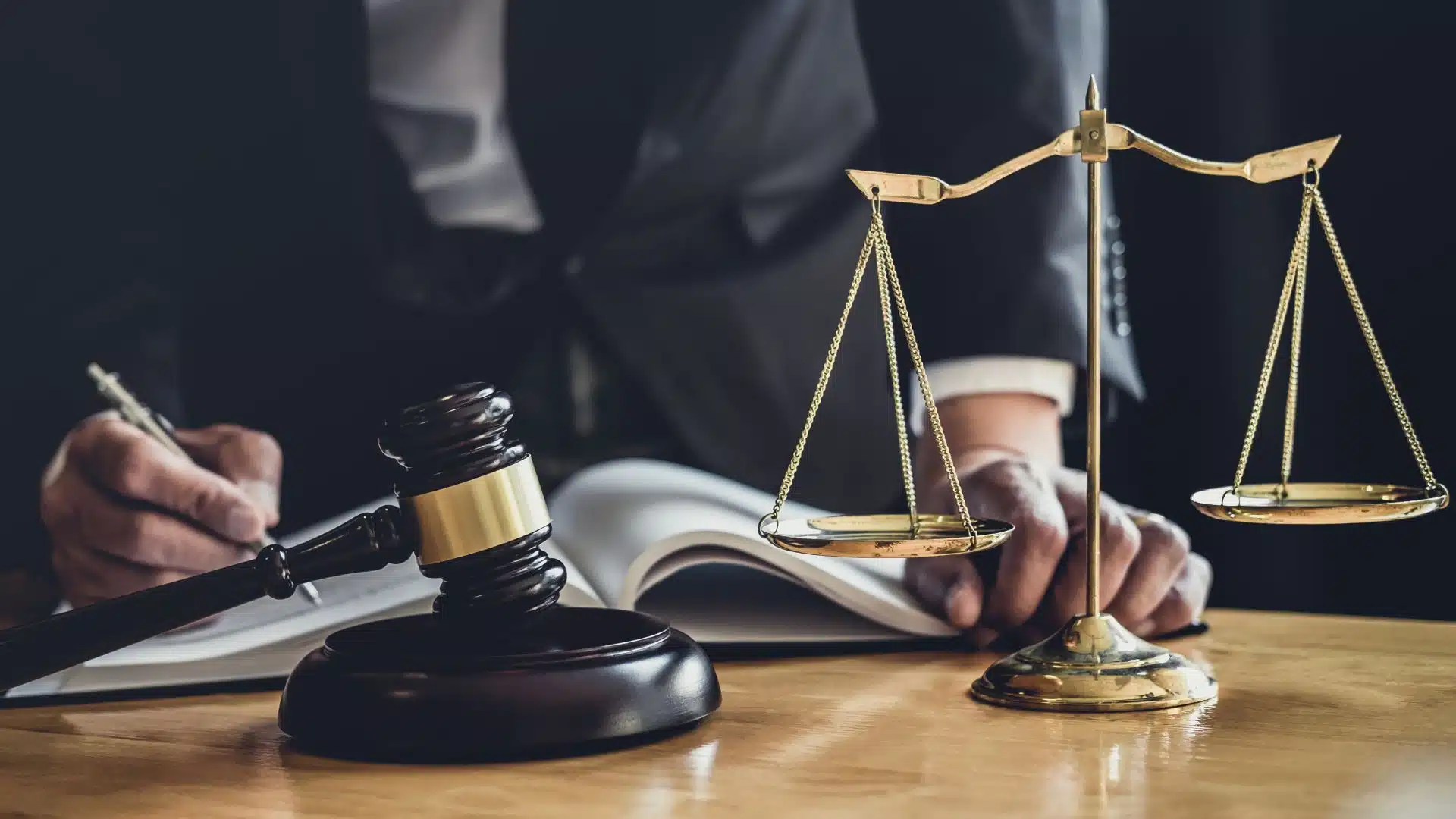Understanding the Role of a White Collar Defense Attorney in Federal Investigations

Federal investigations into white collar crimes are complex, intimidating, and often lengthy. Whether the allegations involve fraud, embezzlement, insider trading, or tax evasion, the consequences can include prison time, loss of professional licenses, and permanent damage to your reputation.
When federal agencies like the FBI, IRS, or SEC are involved, you need an advocate who understands the system inside and out—a white collar defense attorney. Their job isn’t just to argue your case in court; it’s to protect you long before charges are ever filed.
This blog explores the critical role of a white collar defense attorney during federal investigations, explaining what they do, why early intervention matters, and how they can protect your future.
What Is a Federal Investigation?
A federal investigation begins when government agencies suspect a violation of federal law. Unlike local police investigations, these cases are typically extensive and involve multiple agencies working together.
Examples of crimes that trigger federal investigations include:
-
Securities fraud and insider trading
-
Tax fraud or evasion
-
Bribery and corruption
-
Wire fraud and mail fraud
-
Healthcare fraud
-
Money laundering
These investigations can last months—or even years—before formal charges are filed. That’s why having a white collar defense attorney on your side early is essential.
Why Early Legal Representation Is Critical
One of the biggest mistakes people make is waiting until they’re formally charged to hire a lawyer. By that point, the government has already built a strong case.
Hiring a white collar defense attorney early allows your legal team to:
-
Open lines of communication with federal agents and prosecutors.
-
Gain insight into what the government is investigating.
-
Prevent self-incriminating statements during interviews.
-
Identify potential defenses before evidence is finalized.
Early representation can sometimes prevent charges from being filed at all.
The Role of a White Collar Defense Attorney in Federal Investigations
A white collar defense attorney serves many functions throughout a federal investigation. Their responsibilities extend far beyond the courtroom.
1. Assessing the Scope of the Investigation
The first task is to understand what the government is looking for. This involves reviewing subpoenas, search warrants, and correspondence from federal agencies.
Your attorney will determine whether you are a target, subject, or witness in the investigation.
-
A target is someone the government believes has committed a crime.
-
A subject is under investigation but may not yet be formally accused.
-
A witness is someone who may have relevant information but is not suspected of wrongdoing.
Knowing your status helps your white collar defense attorney design the right legal approach.
2. Communicating with Federal Authorities
Federal agencies often contact individuals directly for questioning or document requests. Speaking to investigators without legal counsel is risky because even innocent statements can be used against you.
Your white collar defense attorney acts as a buffer between you and the government. They handle all communications, ensuring that your rights are protected and that you do not accidentally incriminate yourself.
3. Reviewing and Responding to Subpoenas
Receiving a grand jury subpoena is one of the most serious steps in a federal investigation. It usually requires you to produce documents or testify. Mishandling this process can lead to charges of obstruction or contempt.
A white collar defense attorney will:
-
Review the subpoena for legality and scope.
-
Negotiate extensions or limit overly broad requests.
-
Prepare you for testimony, if required.
-
Ensure that all responses are compliant but not self-incriminating.
4. Protecting Your Constitutional Rights
Federal investigators are highly trained and often use aggressive tactics to obtain evidence. Your white collar defense attorney ensures that your constitutional rights—especially under the Fifth Amendment (protection against self-incrimination) and Fourth Amendment (protection against unlawful searches and seizures)—are fully upheld.
If investigators overstep, your lawyer can move to have improperly obtained evidence excluded from the case.
5. Developing a Strategic Defense
Once your white collar defense attorney understands the government’s position, they begin crafting a defense strategy. This may involve:
-
Analyzing the evidence for weaknesses or inconsistencies.
-
Interviewing witnesses and gathering exculpatory evidence.
-
Consulting with forensic accountants, financial analysts, or expert witnesses.
-
Challenging the intent or interpretation of financial transactions.
Because white collar crimes often hinge on intent, your attorney’s goal is to show that you acted in good faith and without criminal purpose.
6. Negotiating with Prosecutors
In some cases, your white collar defense attorney can negotiate with federal prosecutors to resolve the case before it reaches trial. Options may include:
-
Deferred prosecution agreements (DPAs)
-
Non-prosecution agreements (NPAs)
-
Reduced charges or penalties
These negotiations can save you time, money, and the reputational damage that comes with a lengthy trial.
7. Preparing for Trial (If Necessary)
If the case proceeds to trial, your attorney takes charge of building a compelling courtroom defense. This involves:
-
Selecting the jury carefully
-
Cross-examining government witnesses
-
Presenting expert testimony
-
Highlighting flaws in the prosecution’s narrative
An experienced white collar defense attorney understands how to simplify complex financial details for the jury, creating a persuasive and understandable defense.
Common Challenges During Federal Investigations
Federal cases are notoriously complicated. Some of the biggest challenges include:
-
Volume of evidence: Investigations often involve years of records and thousands of documents.
-
Multiple agencies: Coordination among the FBI, SEC, IRS, and DOJ can make defense more complex.
-
Parallel proceedings: You might face simultaneous civil and criminal investigations.
-
Public scrutiny: White collar cases often attract media attention that can affect reputations and careers.
A white collar defense attorney helps you manage each of these challenges strategically.
The Importance of Confidentiality and Discretion
When facing a federal investigation, confidentiality is critical. Anything you say to others—including employees, colleagues, or family members—can potentially reach investigators.
Your white collar defense attorney will advise you on how to maintain confidentiality and may even coordinate with public relations professionals to protect your reputation.
What Happens If You’re Charged?
If the federal government decides to move forward with charges, your attorney’s role shifts toward defending you in court. However, because they’ve already been involved since the investigation began, they’re well-prepared to challenge the prosecution’s evidence and negotiate from a position of strength.
At this stage, your white collar defense attorney will:
-
File pre-trial motions to exclude improper evidence.
-
Continue negotiations for plea deals if appropriate.
-
Represent you aggressively in all hearings and proceedings.
How to Choose the Right White Collar Defense Attorney
Not all criminal defense lawyers are equipped for federal-level white collar cases. When selecting an attorney, look for:
-
Experience with federal agencies like the DOJ or SEC.
-
Proven success in complex financial or corporate cases.
-
Strong negotiation and trial skills.
-
Confidentiality and discretion in handling sensitive information.
-
Clear communication and a track record of trustworthiness.
Choosing the right white collar defense attorney can mean the difference between a conviction and a dismissal.
The Long-Term Value of a Proactive Defense
Even if charges are avoided or dismissed, a federal investigation can affect your career, business, and personal life. A white collar defense attorney helps you:
-
Rebuild your professional reputation.
-
Implement stronger compliance programs.
-
Avoid similar issues in the future.
Proactive defense isn’t just about avoiding prison—it’s about protecting your long-term future.
Conclusion
Federal investigations can be life-altering, but you don’t have to face them alone. An experienced white collar defense attorney provides more than just legal representation—they offer strategy, protection, and peace of mind.
From the moment you learn of an investigation, every step you take matters. Having a skilled advocate ensures that your rights are defended, your options remain open, and your future stays secure.
If you or your business is under investigation, act immediately. The earlier your white collar defense attorney gets involved, the stronger your defense will be.
FAQs About White Collar Defense Attorneys and Federal Investigations
Q1. When should I contact a white collar defense attorney?
You should contact a white collar defense attorney as soon as you suspect you’re being investigated, even before formal charges are filed.
Q2. Can my attorney stop the investigation?
While they can’t stop it completely, your attorney can influence its direction, protect your rights, and sometimes prevent charges from being filed.
Q3. What agencies handle white collar crime investigations?
Common agencies include the FBI, IRS, SEC, Department of Justice (DOJ), and Federal Trade Commission (FTC).
Q4. Do I have to comply with a federal subpoena?
Yes, but your white collar defense attorney can review the subpoena and determine how to respond without incriminating yourself.
Q5. How long do federal investigations take?
They can last from several months to multiple years, depending on the complexity of the case and the evidence involved.








